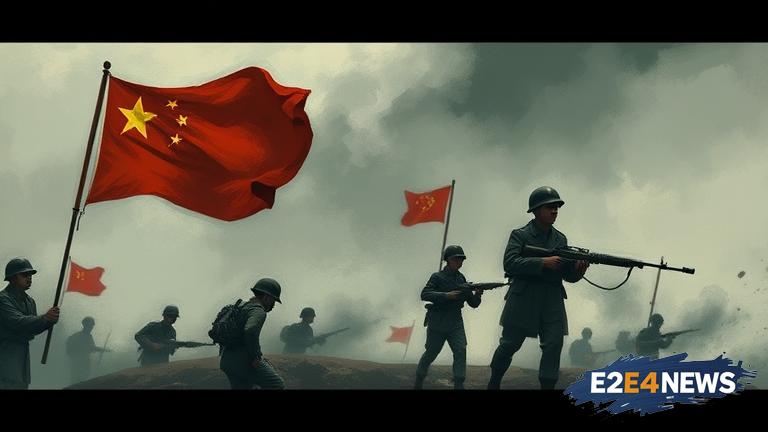China’s narrative of World War II is a complex and multifaceted topic, shaped by a combination of historical events, political considerations, and national identity. The Chinese government has long emphasized the importance of the war in shaping the country’s modern history and promoting patriotism. However, this narrative has also been influenced by the country’s complex relationships with other nations, particularly Japan. The war is remembered as a time of great suffering and sacrifice, with millions of Chinese civilians and soldiers killed or displaced. The Chinese government has sought to promote a narrative of national unity and resistance against Japanese aggression, while also highlighting the role of the Communist Party in leading the resistance. However, this narrative has been criticized for oversimplifying the complexities of the war and ignoring the contributions of other groups, such as the Nationalist Party. The legacy of the war continues to be felt in China today, with many Chinese people still harboring strong feelings of resentment and anger towards Japan. The Chinese government has sought to promote a sense of national pride and identity through the commemoration of key events and anniversaries, such as the 70th anniversary of the end of the war in 2015. However, these efforts have also been criticized for promoting a narrow and nationalistic view of history. In recent years, there has been a growing trend towards more nuanced and balanced accounts of the war, recognizing the complexities and diversity of experiences during this period. Despite these efforts, the politics behind China’s WWII narrative remain highly sensitive and contested, reflecting deeper tensions and rivalries between China and other nations in the region. The narrative has also been influenced by China’s rising global status and its desire to promote a more positive and assertive image on the world stage. As China continues to grow and evolve, its narrative of World War II is likely to remain an important and contested topic, reflecting the country’s complex and often fraught relationships with its neighbors and the wider world. The Chinese government’s efforts to promote a unified and patriotic narrative of the war have been challenged by a range of factors, including the rise of social media and the internet, which have enabled more diverse and critical voices to be heard. Furthermore, the legacy of the war continues to be felt in many other ways, from the ongoing disputes over territory and resources to the lingering tensions and mistrust between China and Japan. Overall, China’s WWII narrative is a complex and multifaceted topic, reflecting the country’s rich and often fraught history, as well as its ongoing struggles to come to terms with its place in the world. The narrative has been shaped by a range of factors, including politics, history, and national identity, and continues to be an important and contested topic in China today.
